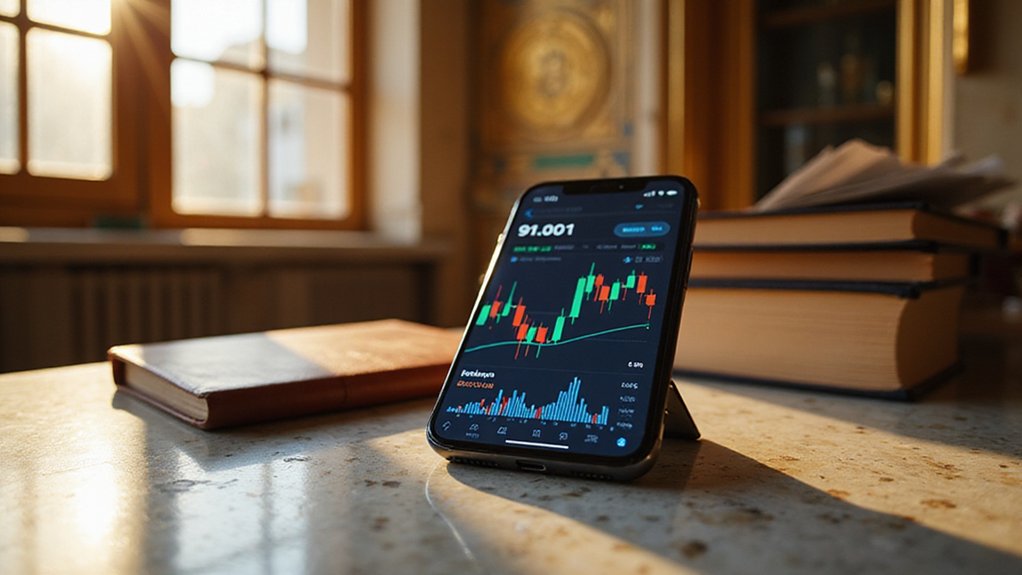While Bitcoin and its blockchain brethren continue their ascent into mainstream financial consciousness, traditional banking institutions remain conspicuously absent from the cryptocurrency revolution—a paradox that begs examination.
The quixotic regulatory landscape serves as the primary deterrent, with the SEC’s SAB 121 imposing particularly onerous accounting requirements for crypto custody that effectively mandate balance sheet inclusion of digital assets—a proposition most banks find indigestible despite congressional attempts to overturn it via the recently vetoed Review Act resolution.
Regulatory quicksand swallows banks’ crypto ambitions while the SEC’s accounting labyrinth makes digital asset custody virtually impossible.
This regulatory ambiguity creates a cascading effect of compliance costs that would make even the most bureaucracy-hardened CFO blanch.
When institutions like BNY Mellon launch crypto custody platforms, they’re outliers rather than trendsetters, having navigated selective SEC exemptions unavailable to their peers.
Most banks face the unenviable choice between extensive capital reserve increases or complex third-party partnerships with firms like State Street and Citigroup that introduce their own operational headaches.
Institutional risk aversion compounds these challenges.
Banks’ traditional risk management frameworks prove incompatible with volatile digital assets, while unresolved questions of legal ownership across jurisdictions create liability concerns that make conventional banker caution seem entirely rational.
Meanwhile, crypto-native competitors have already captured retail market share, leaving banks to contemplate blockchain integration without clear revenue pathways.
The technical hurdles wouldn’t be trivial even with regulatory clarity.
Legacy systems designed for centralized transaction processing fundamentally clash with distributed ledger protocols, necessitating substantial infrastructure investment amid persistent talent shortages in blockchain development.
When BBVA attempted a hybrid wallet solution, scalability limitations kept it firmly in the experimental category.
The integration of AI-powered smart contracts could address many of these technical challenges by automating compliance processes while maintaining the transparency and security institutional investors demand.
These self-executing protocols could significantly reduce operational costs by eliminating intermediaries and automating verification processes across banking functions.
Post-2024 election, the regulatory landscape may shift dramatically, with crypto-friendly legislators potentially comprising 56% of Congress following unprecedented lobbying efforts ($139M from Fairshift alone).
Fed Chair Powell’s testimony that custody assets should be off-balance sheet directly conflicts with SAB 121’s requirements, highlighting the regulatory inconsistency banks must navigate.
Until then, banks will likely continue prioritizing limited blockchain applications for commercial tokenized deposits rather than embracing full cryptocurrency integration—a calculated hesitation that, while frustrating to crypto enthusiasts, reflects the institutional imperative to navigate innovation without existential risk.








